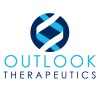
CLN-0046: Treatment of AMD Subjects With OTX-TKI
Neovascular Age-related Macular DegenerationTo evaluate the safety, tolerability and efficacy of OTX-TKI for intravitreal use, in subjects who have neovascular age-related macular degeneration (AMD).

A Study to Test Different Doses of BI 836880 in Patients With an Eye Disease Called Wet Age-related...
Wet Macular DegenerationThis is a study in people with an eye disease called wet age-related macular degeneration (wAMD). The purpose of the study is to find out how well different doses of a medicine called BI 836880 are tolerated. People can participate if they are at least 55 years old and if they have new blood vessels in their eyes despite treatment (anti-VEGF therapies). The study has 2 parts. In the first part, people get only 1 dose of BI 836880. This part takes 6 weeks. In the second part, people get 3 times the same dose of BI 836880. This part takes 6 months. BI 836880 is injected into the eye. During the entire study doctors regularly check the health of the participants.

A 3-month Study to Compare the Safety of ONS-5010 in Vials Versus Pre-filled Syringe in Subjects...
Age-Related Macular DegenerationNeovascular Age-related Macular Degeneration3 moreThe study will compare the safety of ophthalmic bevacizumab in vials versus pre-filled syringes in subjects diagnosed with a retinal condition that would benefit from treatment with intravitreal injection of bevacizumab, including: exudative age-related macular degeneration, diabetic macular edema, or branch retinal vein occlusion.

Study to Gather Information on Safety and Use of High Dose Aflibercept Injection Into the Eye in...
Neovascular Age-Related Macular DegenerationIn this study researchers want to learn more about changes in visual acuity (clarity of vision) with a high dose treatment with Aflibercept (Eylea) in patients suffering from neovascular age-related macular degeneration (nAMD). Neovascular AMD is an eye disease that causes blurred vision or a blind spot due to abnormal blood vessels that leak fluid or blood into the light sensitive lining inside the eye (retina). The fluid buildup causes the central part of the retina (macula) responsible for sharp, straight-ahead vision to swell and thicken (edema), which distorts vision.

A Study Of The Efficacy, Safety, And Pharmacokinetics Of The Port Delivery System With Ranibizumab...
Neovascular Age Related Macular DegenerationnAMDThis study will evaluate the efficacy, safety, and pharmacokinetics of ranibizumab 100 mg/mL delivered Q24W via the PDS implant compared with ranibizumab 0.5 mg delivered as a Q4W intravitreal injection in Chinese patients with nAMD.

A Study to Evaluate the Efficacy and Safety of IBI302 in Subjects With nAMD
Neovascular Age-related Macular DegenerationThe study is designed for multi-center,randomized,double-masked,active-contralled study to evaluate effective and security of intravitreal injection of IBI302 in subjects with neovascular age-related macular degeneration.

Phase I/II Study of SKG0106 Intraocular Solution in Patients With Neovascular Age-related Macular...
Neovascular Age-related Macular DegenerationThis is a phase 1/2 clinical study to evaluate the safety, preliminary efficacy, immunogenicity, and pharmacokinetic (PK) characteristics of SKG0106 in subjects with nAMD. Based on results from the phase 1 dose escalation study, the phase 2 expansion study will be conducted.

Safety and Bioactivity of AXT107 in Subjects With Neovascular Age-Related Macular Degeneration (nAMD)...
Neovascular Age-related Macular DegenerationThe goal of this clinical trial is to understand the safety of AXT107 injected suprachoroidally in participants with nAMD. The main question[s] it aims to answer are: Safety of the maximum tolerable dose of AXT107 Bioactivity and duration of action of AXT107 injected suprachoroidally Participants will be injected with AXT107 and will be followed on a regular monitoring visits through 9 months post single injection.

Observational Study to Evaluate Fluid Resolution and Effectiveness in Patients Receiving Beovu in...
Neovascular Age-related Macular Degeneration (nAMD)Diabetic Macular Edema (DME)This study is a prospective, non-interventional, multicenter, open-label study in nAMD and DME patients being treated with brolucizumab according to the EU SmPC. An observational study design, without a strict, mandated visit schedule or mandated treatment regimen was chosen as the most appropriate to collect available data in a real life setting. For that reason, this NIS does not impose a therapy protocol, diagnostic/therapeutic procedure or a visit schedule. The diagnostic or monitoring procedures are only those ordinarily applied to the therapeutic strategy and to routine clinical care and will take place as per investigator's discretion. This includes e.g. visit frequency, injection frequency and types of assessments performed - only data from routine medical practice will be collected as part of the study.

Gene Therapy for Wet AMD
Neovascular Age-related Macular DegenerationFT-003 is a gene therapy product developed for the treatment of neovascular age-related macular degeneration (nAMD). Neovascular AMD is the main cause of blindness among elderly individuals. The available therapies for treating nAMD require life-long intravitreal (IVT) injections every 4-12 weeks to maintain efficacy. Administration of FT-003 has the potential to treat nAMD by providing durable expression of therapeutic levels of intraocular protein and maintaining the vision of patients. FT-003 is designed to reduce the current treatment burden which often results in undertreatment and vision loss in patients with nAMD receiving anti-VEGF therapy in clinical practice.
